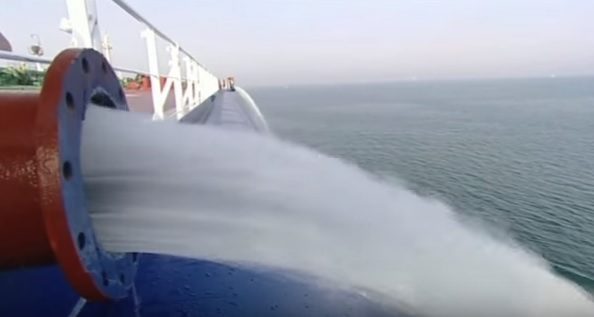The Ballast Water Equipment Manufacturers’ Association (BEMA) highlights the need to address the issue of BWMS operation in ports with challenging waters. On the occasion of MEPC 76 last year, BEMA issued a position paper to discuss related challenges for consideration.
In particular, BEMA noted that the selection of a quality ballast water management system (BWMS) that is suitable for and aligned with a ship’s operational profile and anticipated voyage patterns remains a critical foundational aspect of proper ballast water management.
When installed, operated and maintained according to the BWMS manufacturers’ specification, operation of a type approved BWMS is expected to result in ballast water discharges that are compliant with international discharge standards. Situations where BWMS will reach a design operational limitation(s) due to challenging water quality can be reasonably anticipated during global implementation of the BWM Convention. Guidance to facilitate ship operations is needed to support crews in such situations and when use of contingency measures may be needed.
BWMS manufacturers should have an active role in supporting crews in such situations, and particularly when a determination is made that bypassing the BWMS is required. The technical expertise and operational experiences of the BWMS manufacturer is often overlooked. Operating a BWMS in water quality conditions that are near or outside the BWMS design limitations is not the same as “BWMS failure”. A BWMS has warnings and alarms to protect the BWMS equipment and/or ship, and triggering of these set points demonstrates proper BWMS operation as designed.
Bypassing a BWMS should be implemented only after reasonable attempts to facilitate BWMS operation have been exhausted. Consideration should also be given that water quality conditions can change within a port over a short period of time (i.e., seasonal or tidal changes), that can result in successful BWMS operation that may have previously experienced challenges. Reliance upon ballast water exchange (BWE) as the primary contingency measure requires consideration of potential operational, safety and environmental consequences.
There is a need for clear direction when a ship encounters a port with challenging water quality that has documented impacts on successful BWMS operation.
In that regard, BEMA suggests that there are technical and practical aspects that require due consideration in developing such guidance and welcomes any opportunities to provide input to the EBP or to support Administrations with a need for technical information related to the ballast water treatment industry.
Key points include:
– The expectation is that every BWMS operation delivers compliance in accordance with Regulation D-2.
– BEMA agrees that clear direction should be made available in order to support ship operators in rare cases when a BWMS is unable to treat local water.
– BEMA would encourage owners to engage with system manufacturers to ensure that a quality BWMS that meets their operational profile is selected.
– BEMA fully supports the need for the inclusion of BWMS technology specific and ship specific contingency measures within BWMPs.
– BEMA proposes that a BWMS is only bypassed if there is a fully documented reason. Bypass should be sanctioned once the specific system on a specific ship cannot treat ballast water due to exceedance of operational limitations, and reasonable attempts to facilitate BWMS operation have been exhausted.
– BEMA endorses the need for the derivation of appropriate contingency measures that are vessel, BWMS and situation specific. Such contingency measures should form an integral part of the Flag approved BWMP.

































































